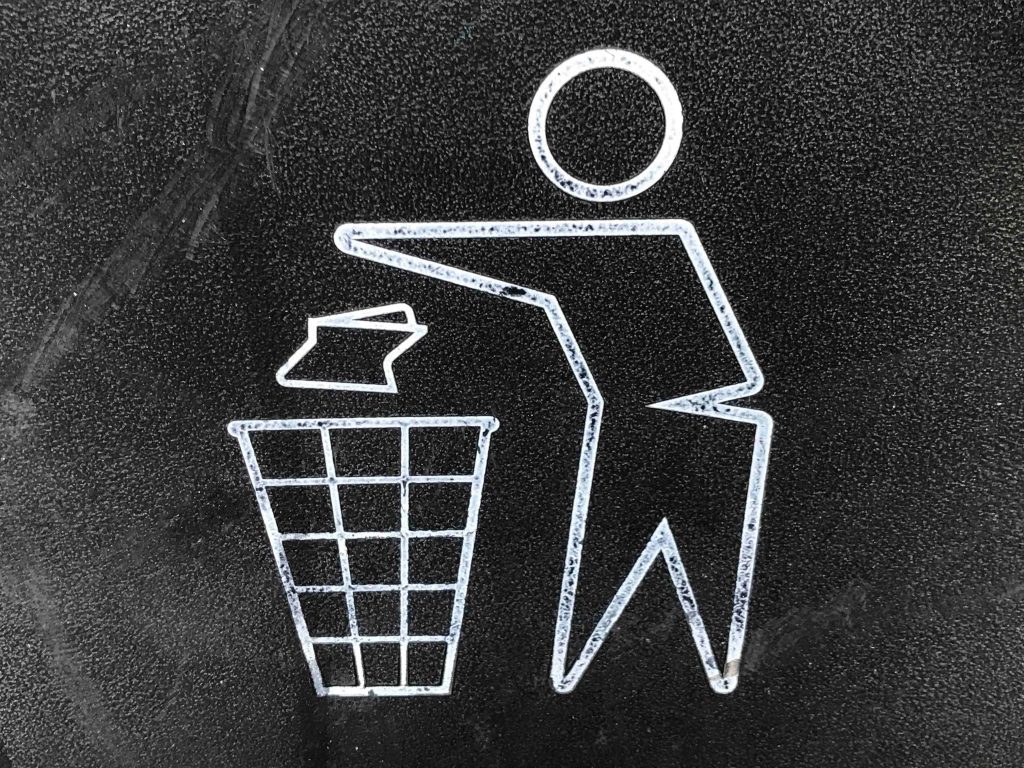
The global waste industry has been on the rise in economic value since the discovery and popularisation of recycling plants. It is a common practice to recycle plastic, paper, and other recyclable waste before its disposal or conversion into other raw materials, yet the waste industry is responsible for thousands of pounds of waste being illegally dumped in developing or underdeveloped nations. India and a slew of other South-East Asian countries are bearing the brunt of the irresponsible behavior that is commonplace in the western and developed world where the waste is collected and exported across markets to recyclers in India and other Asian countries.
India, like many other developing nations, is one of the importers of such waste to recycle and convert this waste into raw materials that can be used by the Indian population and industries in their various activities. However, developed nations abuse this import mechanism by sending wastes that are hazardous, untreated, barred by the Indian laws into the country via unethical and unsustainable means. This put an increased burden of waste management on the Indian authorities. This excess waste pollutes India’s air and water thus dangerously affecting the quality of life of Indian citizens and residents.
Who regulates the Import of wastes to India?
The movement and import of waste are governed under the rules prescribed by the Ministry of Environment, Forest and Climate Change, directions from the Supreme court, and guidelines enumerated by State Pollution Control Boards or SPCBs for the safe and proper disposal of waste. Apex Court in cases such as M.C. Mehta v. Union of India and Vellore Citizens Forum v. Union of India highlighted the need for a safe and healthy environment and has made it a fundamental right under Article 21 of the Constitution of India.
The import of waste into India is done primarily through recyclers that have a license to import materials and recycle them. Apart from recycling companies, multiple Indian manufacturers import used or burnt computer chips to use in local devices adding to the waste generated and disposed of every year and other manufacturers such as paper manufacturers import paper to recycle and convert it into recycled paper.
Why is waste Imported?
Recyclers import wastes such as plastics primarily because it is cheaper to buy segregated plastics from abroad than to sort and separate the plastic scrap that is generated locally, making the entire premise of recycling defunct in this case. Since the Indian Government banned the import of plastic and other contaminated scraps, this problem is bound to see some solutions but it is still uncertain if recyclers will ever take the initiative to segregate locally produced plastic wasted rather than import waste to recycling.
In addition to plastic, paper waste has seen tremendous growth in the quantities imported. These imports often come with contaminated bio-medical, biological, or other forms of waste which are not only toxic and harmful for the environment, but also illegally exported and in violation of the Basel Convention agreements regarding the disposal and export of waste. In October 2019, it was found that the US and Indonesia dumped over 38 barrels of contaminated waste on India through imports, 25 of which had come to Indonesia from the US. Through this, it is clear that the import of contaminated and plastic wastes is far more serious as Indian Landfills are quickly running out of capacity to hold the heaps of waste regularly dumped there.
Indian Restrictions on Imports of Waste

From August 2019, the import and delivery of plastic wastes to Indian and Indian buyers is banned and is made a punishable offense under the Plastic Waste Management Rules, 2016. This was in response to the growing reports of illegal imports of plastic wastes which were coming at the cost of over 40% of the local plastic waste remaining uncollected. The 2019 restrictions require all producers to register with the Central Pollution Control Board (CPCB) and follow a closely monitored checklist before they produce any plastic. Additionally, recycling plastic will only be allowed if it sticks to Indian standards and no exceptions will be made.
Further, the Indian government has set a 1% contamination limit to all paper imports into the country and 5 random bales of paper will be inspected per container to restrict the limit of contamination to 1%. This limit will effectively return to the country of origin any paper scrap which was found to be contaminated with hazardous substances, contaminants, bio-waste, untreated or sewage scrap to a volume of 1% of the total volume of waste in the container. This is similar to the Chinese policy of 0.5% contamination. These policies aim to better the ecological crisis in India due to the excessive dumping and mistreatment of scrap. This has led to an immense loss in biodiversity around landfills and in polluted waters, all of which affect India’s ecology and harm the environment.
Basel Action Network
The Basel Action Network is a global watchdog founded to supervise and advise on waste management and transportation. It was founded under an international treaty on the request of developing countries when it was discovered that developed nations transported hazardous scrap and illegally dumped hazardous waste in the territories of developing nations. Its primary purpose is to protect the interests of all countries while facilitating the legal and responsible movement of waste between countries.
Incidents of ships from the US or UK (most notorious for toxic dumping on other countries) dropping their cargo in the high seas, improper treatment of waste and toxic substances in underdeveloped nations, and the high cost of transporting the waste across continents are all still very much the reality years after the passing of this conventional and its ratification by multiple countries.
Despite the treaty governing nearly all aspects of waste transport, the treaty is unable to ensure efficient enforcement of the treaty nor is it able to combat the business deals that disguise waste and hazardous materials and transport them under false pretenses. These shortcomings and the explosive growth of the recycling industry have left the BAN barely able to catch up with the monumental changes that take place every day. This has forced the hand of several countries such as India and China into banning imports of select categories of the waste entirely, shifting the burden onto smaller and less equipped countries.
Passing the Burden
The ban by India and China, two of the largest importers of plastic wastes and paper wastes has left the world in a state of shock. The supply of such volumes of scrap has to be transferred to other developing nations where recycling is only at the stage of niche which adversely, affects their economy and environment. Many of these, primarily poor Asian and African countries are unable and are unprepared to cope with this increased availability of waste. Often, they have to resort to the open burning of plastics and other wastes or their disposal in landfills and oceans.
In addition to the environmental impacts of this flood of waste, it has also caused widespread chaos to the communities native to these countries “with the flood of plastic scrap, in particular, leading to contaminated water supplies, crop death, respiratory illness from exposure to burning plastic and the rise of organized crime.” Reading these disturbing reports, a new trend has emerged, one where more and more plastic and hazardous wastes are disappearing off the grid, making it impossible to value the plastic that is being transported and recycled. These practices are not only unethical but also reflect on the carelessness with which developed nations treat the environment of other countries.
Conclusion
The transport of waste across borders for recycling is a novel idea and should be lauded, but, in its current state and implementation, it is nothing short of an escape mechanism. It serves only the interests of the developed and rich nations that can afford to dump their waste on other countries on the pretense of recycling. Increasing cases of disappearing waste, increased offshore dumping, ecological disasters arising out of increased import of waste are all clear indicators of the inadequacy of the current solution to waste.
In this author’s opinion, developed nations should have to buy spots to recycle their waste in other countries and these spots should be equivalent in value to the cost of the shipments sent out. Any country found offshore dumping must be charged heavily and clean-ups must be funded in full by the guilty country. There needs to be more enforcement of the BAN treaty and countries too must implement more stringent laws to stop the practice of scrap transport across borders. One country’s scrap cannot be another country’s treasure and it is wrong for the developed nations to treat their waste as such. They should have the primary responsibility of cleaning or compensating for the damage caused by their recklessness and they should be made to face the consequences of their accumulated waste.